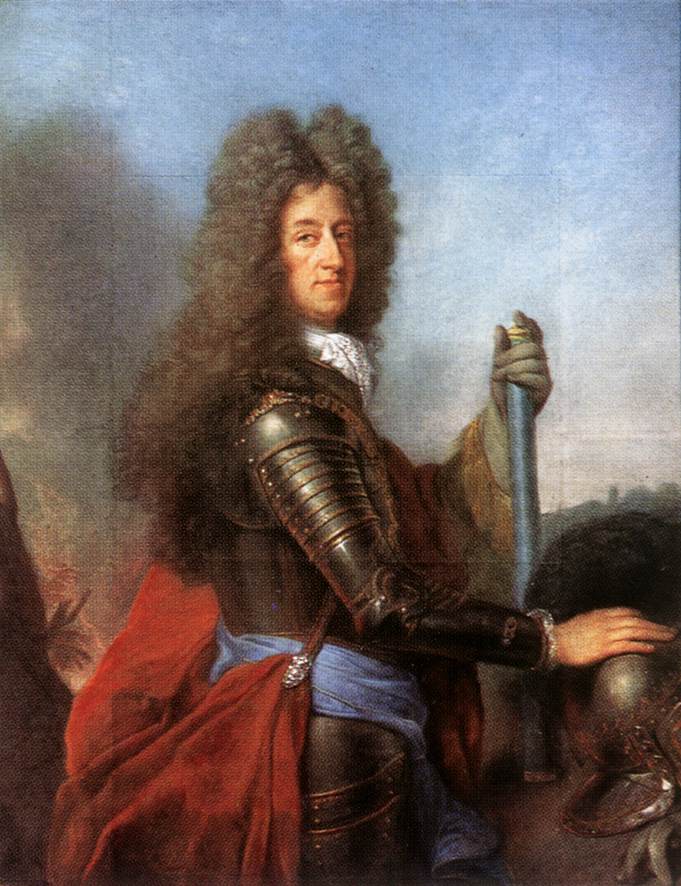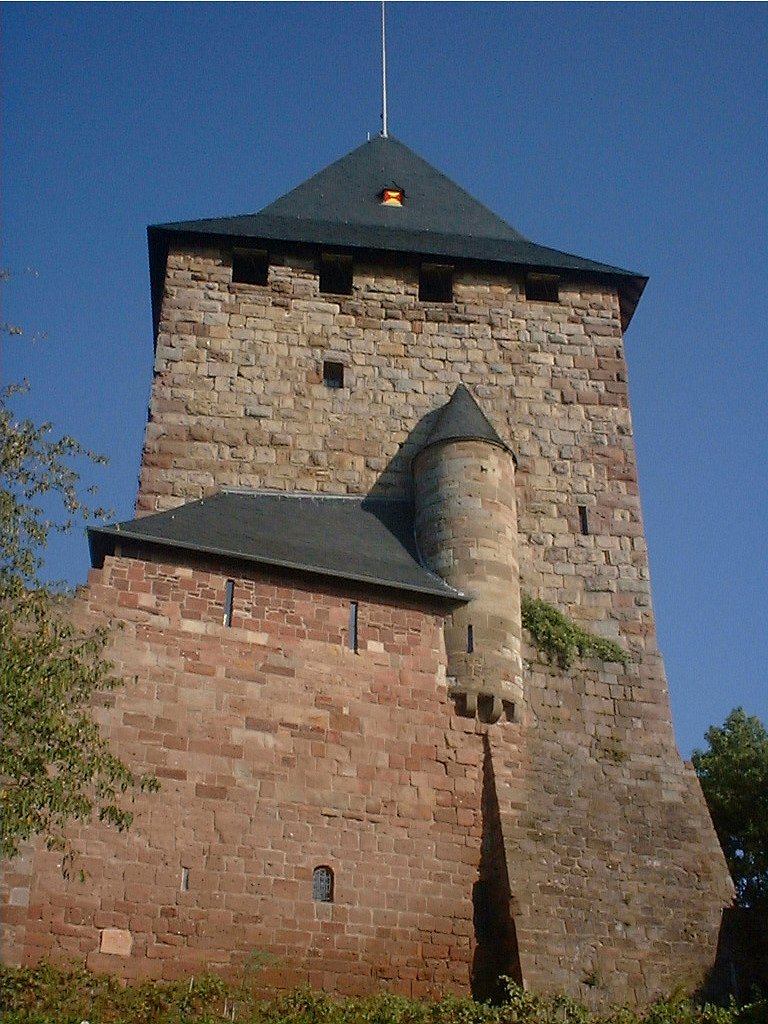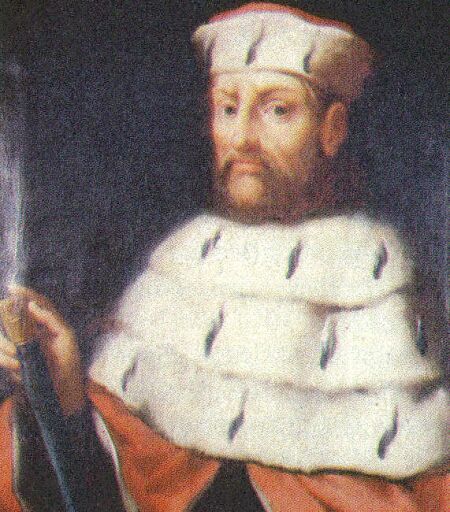|
Charles Theodore, Elector Of Bavaria
Charles Theodore (; 11 December 1724 – 16 February 1799) was a German nobleman of the Palatinate-Sulzbach, Sulzbach branch of the House of Wittelsbach. He became Count Palatine of Sulzbach at the age of six following the death of his father John Christian, Count of Palatinate-Sulzbach, Johann Christian in 1733. With the death of his cousin, Charles III Philip, Elector Palatine, Charles III Philip, he became Prince-elector and County Palatine of the Rhine, Count Palatine of the Rhine in 1742, being eighteen. In his fifties, he became Prince-Elector of Bavaria at the death of another cousin, Maximilian III Joseph, Elector of Bavaria, Maximilian III Joseph, in 1777. Family and ascent Charles Theodore was born into Palatinate-Sulzbach branch of the House of Wittelsbach. Brockhaus Geschichte Second Edition His father was John Christian, Count of Palatinate-Sulzbach, Johann Christian, who later became Count Palatine of Sulzbach. His mother was Maria Henriette de La Tour d'Auvergne, ... [...More Info...] [...Related Items...] OR: [Wikipedia] [Google] [Baidu] |
Anna Dorothea Therbusch
Anna Dorothea Therbusch (born Anna Dorothea Lisiewski, , 23 July 1721 – 9 November 1782) was a prominent Rococo painter born in the Kingdom of Prussia. About 200 of her works survive, and she painted at least eighty-five verified portraits.Artnet.com retrieved 21 July 2009 Life Anna Dorothea Therbusch was born in Berlin. She came from a noted family, the daughter of Maria Elisabetha (née Kahlow) and Georg Lisiewski (1674–1751), a Berlin portrait painter of Polish people, Polish stock who arrived in Prussia in 1692 as part of the retinue of the court architect . Georg taught Anna, her sister Anna Rosina de Gasc, Anna Rosina Lisiewski and their brother Christian Friedrich Reinhold to paint. She trained as a painter during her teens. Ann ...[...More Info...] [...Related Items...] OR: [Wikipedia] [Google] [Baidu] |
Electorate Of Bavaria
The Electorate of Bavaria () was a quasi-independent hereditary electorate of the Holy Roman Empire from 1623 to 1806, when it was succeeded by the Kingdom of Bavaria. The Wittelsbach dynasty which ruled the Duchy of Bavaria was the younger branch of the family which also ruled the Electoral Palatinate. The head of the elder branch was one of the seven prince-electors of the Holy Roman Empire according to the Golden Bull of 1356, but Bavaria was excluded from the electoral dignity. In 1621, Frederick V, Elector Palatine was put under the imperial ban for his role in the Bohemian Revolt against Ferdinand II, Holy Roman Emperor, and the electoral dignity and territory of the Upper Palatinate was conferred upon his loyal cousin, Duke Maximilian I of Bavaria. Although the Peace of Westphalia would create a new electoral title for Frederick V's son, with the exception of a brief period during the War of the Spanish Succession, Maximilian's descendants would continue to h ... [...More Info...] [...Related Items...] OR: [Wikipedia] [Google] [Baidu] |
Duchy Of Berg
Berg () was a state—originally a county, later a duchy—in the Rhineland of Germany. Its capital was Düsseldorf. It existed as a distinct political entity from the early 12th to the 19th centuries. It was a member state of the Holy Roman Empire. The name of the county lives on in the modern geographic term Bergisches Land, often misunderstood as ''bergiges Land'' (hilly country). History Ascent The Counts of Berg emerged in 1101 as a junior line of the dynasty of the Ezzonen, which traced its roots back to the 9th-century Kingdom of Lotharingia, and in the 11th century became the most powerful dynasty in the region of the lower Rhine. In 1160, the territory split into two portions, one of them later becoming the County of the Mark, which returned to the possession of the family line in the 16th century. The most powerful of the early rulers of Berg, Engelbert II of Berg died in an assassination on November 7, 1225. In 1280 the counts moved their court from Schloss Burg ... [...More Info...] [...Related Items...] OR: [Wikipedia] [Google] [Baidu] |
Duchy Of Jülich
The Duchy of Jülich (; ; ) comprised a state within the Holy Roman Empire from the 11th to the 18th centuries. The duchy lay west of the Rhine river and was bordered by the Electorate of Cologne to the east and the Duchy of Limburg to the west. It had territories on both sides of the river Rur, around its capital Jülich – the former Roman ''Iuliacum'' – in the lower Rhineland. The duchy amalgamated with the County of Berg beyond the Rhine in 1423, and from then on also became known as ''Jülich-Berg''. Later it became part of the United Duchies of Jülich-Cleves-Berg. Its territory lies in present-day Germany (part of North Rhine-Westphalia) and in the present-day Netherlands (part of the Limburg province), its population sharing the same Limburgish dialect. History County In the 9th century a certain Matfried was count of Jülich (pagus Juliacensis). The first mention of a count in the gau of Jülich in Lower Lorraine, is Gerhard I, in 1003; his grandson Gerhar ... [...More Info...] [...Related Items...] OR: [Wikipedia] [Google] [Baidu] |
Electoral Palatinate
The Electoral Palatinate was a constituent state of the Holy Roman Empire until it was annexed by the Electorate of Baden in 1803. From the end of the 13th century, its ruler was one of the Prince-electors who elected the Holy Roman Emperor, ranking them among the most significant secular Princes of the Holy Roman Empire. The Palatinate consisted of a number of widely dispersed territories, ranging from the left bank of the Upper Rhine in the modern state of Rhineland-Palatinate, adjacent parts of the French regions of Alsace and Lorraine to the opposite territory on the east bank of the Rhine in present-day Hesse and Baden-Württemberg up to the Odenwald range and the southern Kraichgau region, containing the capital cities of Heidelberg and Mannheim. In 1541, Otto Henry, Elector Palatine converted to Lutheranism, while his Calvinist descendant, Frederick V, sparked the Thirty Years' War in 1618 by accepting the Crown of Bohemia. Occupied until the 1648 Peace o ... [...More Info...] [...Related Items...] OR: [Wikipedia] [Google] [Baidu] |
Lords And Margraves Of Bergen Op Zoom
Lords may refer to: * The plural of Lord Places * Lords Creek, a stream in New Hanover County, North Carolina * Lord's, English Cricket Ground and home of Marylebone Cricket Club and Middlesex County Cricket Club People *Traci Lords (born 1968), American actress Politics *House of Lords The House of Lords is the upper house of the Parliament of the United Kingdom. Like the lower house, the House of Commons of the United Kingdom, House of Commons, it meets in the Palace of Westminster in London, England. One of the oldest ext ..., upper house of the British parliament * Lords Spiritual, clergymen of the House of Lords * Lords Temporal, secular members of the House of Lords * Trịnh Lords, Vietnamese rulers (1553–1789) Other * Lords Feoffees, English charitable trust * Lords of Acid, electronic band * Lords Hoese, English noble house *'' Lords of the Realm'', '' Lords of the Realm II'', and '' Lords of the Realm III'', a series of video games *"Lords", a song ... [...More Info...] [...Related Items...] OR: [Wikipedia] [Google] [Baidu] |
Mannheim
Mannheim (; Palatine German language, Palatine German: or ), officially the University City of Mannheim (), is the List of cities in Baden-Württemberg by population, second-largest city in Baden-Württemberg after Stuttgart, the States of Germany, state capital, and Germany's List of cities in Germany by population, 21st-largest city, with a population of over 315,000. It is located at the border with Rhineland-Palatinate. The city is the cultural and economic centre of the Rhine-Neckar, Germany's Metropolitan regions in Germany, seventh-largest metropolitan region, with nearly 2.4 million inhabitants. Mannheim is located at the confluence of the Upper Rhine and the Neckar in the Kurpfalz (region), Kurpfalz (Electoral Palatinate) region of northwestern Baden-Württemberg. The city lies in the Upper Rhine Plain, Germany's warmest region, between the Palatine Forest and the Oden Forest. Mannheim forms a continuous urban zone of around 500,000 inhabitants with Ludwigshafen am Rhe ... [...More Info...] [...Related Items...] OR: [Wikipedia] [Google] [Baidu] |
Brussels
Brussels, officially the Brussels-Capital Region, (All text and all but one graphic show the English name as Brussels-Capital Region.) is a Communities, regions and language areas of Belgium#Regions, region of Belgium comprising #Municipalities, 19 municipalities, including the City of Brussels, which is the capital of Belgium. The Brussels-Capital Region is located in the central portion of the country. It is a part of both the French Community of Belgium and the Flemish Community, and is separate from the Flemish Region (Flanders), within which it forms an enclave, and the Walloon Region (Wallonia), located less than to the south. Brussels grew from a small rural settlement on the river Senne (river), Senne to become an important city-region in Europe. Since the end of the Second World War, it has been a major centre for international politics and home to numerous international organisations, politicians, Diplomacy, diplomats and civil servants. Brussels is the ''de facto' ... [...More Info...] [...Related Items...] OR: [Wikipedia] [Google] [Baidu] |
Henri De La Tour D'Auvergne, Viscount Of Turenne
Henri de La Tour d'Auvergne, vicomte de Turenne (11 September 161127 July 1675), commonly known as Turenne (), was a French general and one of only six Marshal of France, marshals to have been promoted Marshal General of France. The most illustrious member of the La Tour d'Auvergne family, his military exploits over his five-decade career earned him a reputation as one of the greatest military commanders in history. Born to a Huguenot family, the son of a Henri de La Tour d'Auvergne, Duke of Bouillon, Marshal of France, he was introduced to the art of war at a young age. He first served as a volunteer in the Dutch States Army under the orders of his maternal uncles Maurice of Nassau and Frederick Henry, Prince of Orange, Frederick Henry before pursuing his career in the service of France, where his noble origins and proven qualities soon saw him rise to the top of the military hierarchy. He rose to prominence during the Thirty Years' War by Battle of Breisach, capturing the for ... [...More Info...] [...Related Items...] OR: [Wikipedia] [Google] [Baidu] |
County Palatine Of The Rhine
This article lists counts palatine of Lotharingia, counts palatine of the Rhine, and electors of the Palatinate (), the titles of three counts palatine who ruled some part of the Rhine region in the Kingdom of Germany and the Holy Roman Empire between 915 and 1803. From 1261 (formally 1356), the title holder was a member of the small group of prince-electors who elected the emperor of the Holy Roman Empire. Since then, the title has also been referred to as "Electoral Palatinate, Elector Palatine". Counts palatine of Lotharingia, 915–1085 The Palatinate emerged from the County Palatine of Lotharingia which came into existence in the 10th century. * Wigeric of Lotharingia, count of the Bidgau ( 915/916–922) * Godfrey, Count Palatine of Lotharingia, Godfrey, count of the Jülichgau (c. 940) House of Ezzonen During the 11th century, the Palatinate was dominated by the Ezzonen, Ezzonian dynasty, which governed several counties on both banks of the Rhine. These territories w ... [...More Info...] [...Related Items...] OR: [Wikipedia] [Google] [Baidu] |
Prince-elector
The prince-electors ( pl. , , ) were the members of the Electoral College of the Holy Roman Empire, which elected the Holy Roman Emperor. Usually, half of the electors were archbishops. From the 13th century onwards, a small group of prince-electors gained the privilege of electing the King of the Romans. The king would then later be crowned Emperor by the pope. Charles V (elected in 1519) was the last emperor to be crowned (1530); his successors assumed the title "Elected Emperor of the Romans" (; ) upon their coronation as kings. The dignity of elector carried great prestige and was considered to be behind only the emperor, kings, and the highest dukes. The electors held exclusive privileges that were not shared with other princes of the Empire, and they continued to hold their original titles alongside that of elector. The heir apparent to a secular prince-elector was known as an electoral prince (). Rights and privileges Electors were rulers of ( Imperial Estates) ... [...More Info...] [...Related Items...] OR: [Wikipedia] [Google] [Baidu] |
John Christian, Count Of Palatinate-Sulzbach
John Christian (23 January 1700 – 20 July 1733; ''in German: Johann Christian Joseph'') was the Count Palatine of Sulzbach from 1732–33. He was the second and youngest surviving son of duke Theodore Eustace, Count Palatine of Sulzbach (1659–1732) with his consort Eleonore Maria Amalia of Hesse-Rotenburg (1675–1720). His elder brother was Joseph Charles, Count Palatine of Sulzbach. Life After the death of his elder brother Joseph Charles, John Christian Joseph became the eventual designated heir of the Electoral Palatine. In 1732, he succeeded his father as Count Palatine of Sulzbach but died in Sulzbach in 1733 before inheriting the Palatinate. Charles III Philip, Elector Palatine, a member of the Palatine Neuburg line of Wittelsbach The House of Wittelsbach () is a former Bavarian dynasty, with branches that have ruled over territories including the Electorate of Bavaria, the Electoral Palatinate, the Electorate of Cologne, County of Holland, Holland, Cou ... [...More Info...] [...Related Items...] OR: [Wikipedia] [Google] [Baidu] |








